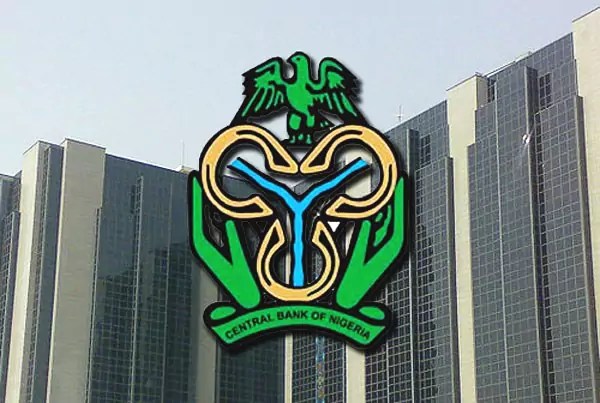🌿 Ruzu Non-Alcoholic Herbal Bitters
Ruzu Non-Alcoholic Herbal Bitters is a natural health supplement specially formulated to:
- ✅ Promote general wellness
- ✅ Detoxify the body
- ✅ Support the treatment of various ailments
Made from a powerful blend of 100% organic and medicinal herbs, Ruzu is completely alcohol-free, making it ideal for:
- 👪 All age groups
- 🌱 Health-conscious individuals
- 🌿 Anyone seeking non-alcoholic herbal remedies
Whether you're looking to boost your vitality, cleanse your system, or support healing the natural way, Ruzu Bitters offers a trusted herbal solution.
The Central Bank of Nigeria (CBN) has taken action to enforce adherence to current foreign exchange laws by suspending licenses for the extension of export revenue repatriation.
A circular issued on January 8, 2025, established this directive, which is applicable to both oil and non-oil export transactions.
The circular, which was signed by W.J. Kanya, the Acting Director of the CBN’s Trade and Exchange Department, cited Memorandum 10A (23a) and Memorandum 10B (20a) in the Foreign Exchange Manual (Revised Edition, March 2018) as the legal foundation for this ruling.
Exporters must closely follow the deadlines for repatriating export revenues, which are 90 days for oil and gas exports and 180 days for non-oil exports, according to the CBN. According to the apex bank, these deadlines cannot be negotiated.
With effect from the date of this circular, authorized dealers’ requests to extend the repatriation of export revenues on behalf of their clients will no longer be granted by the Central Bank of Nigeria.
According to the circular, “for the avoidance of doubt, the proceeds of oil and non-oil exports must be repatriated and credited into the exporters’ export proceeds domiciliary accounts within 180 days and 90 days from the bill of lading date for non-oil and oil and gas exports, respectively.”
To guarantee adherence to repatriation regulations, this strategy imposes more stringent requirements on exporters and the institutions who serve as their approved dealers.
Banks must ensure compliance and notify their customers of these revised rules.
The CBN further cautioned that penalties or other regulatory actions might follow noncompliance. The apex bank’s larger initiatives to boost foreign exchange inflows and fortify Nigeria’s external reserves are in line with this action.
The CBN’s most recent strategy builds on previous efforts to enhance foreign exchange management. International oil corporations (IOCs) doing business in Nigeria were impacted by regulations the apex bank put in place in 2024. The capacity of IOCs to promptly transfer all foreign exchange earnings to its parent firms was restricted by these measures.
As an alternative, IOCs had to repatriate half of their profits right away, with the other half to be done 90 days following the inflow. The CBN also established guidelines for IOCs’ cash pooling, requiring thorough spending reports prior to pooling and prior approval for repatriation under the cash pooling framework.
Read Also: Sir Mike Okiro and the leadership of Ohanaeze Ndigbo Worldwide – Chioma Adeoye’s Analysis
IOCs could sell the remaining 50% of their repatriated revenues to approved foreign exchange dealers and utilize the other 50% to pay off debts within Nigeria over a period of 90 days under these regulations.
Repatriation extensions have been suspended, demonstrating the CBN’s resolve to uphold foreign exchange laws and encourage foreign exchange inflows. The CBN wants to stabilize the naira and increase foreign reserves, which are essential for resilience and economic growth, by making sure that export earnings are promptly repatriated.
In an indication of the CBN’s determination to uphold discipline in foreign exchange management, exporters and financial institutions are now subject to increased scrutiny to adhere to these directions.
















